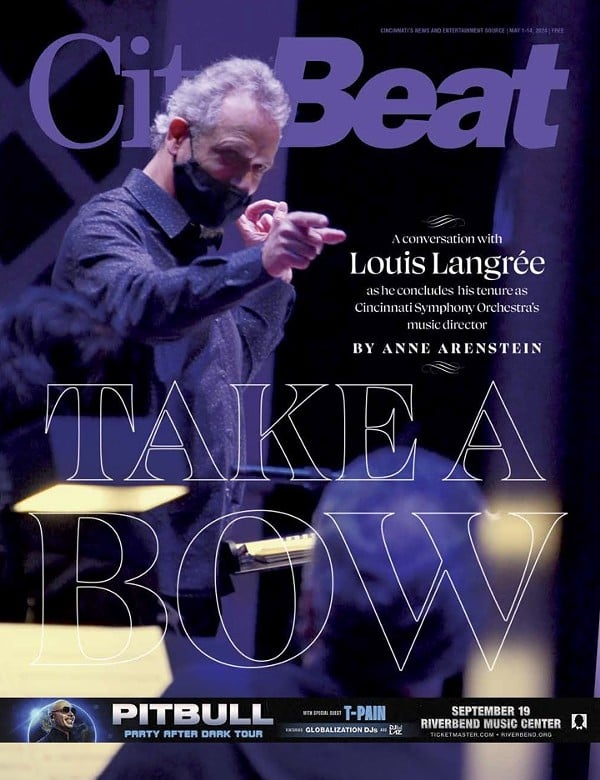Jeffrey Hill was set to be executed on March 3 for murdering his mother in Cincinnati. But Ohio Gov. Ted Strickland followed the recommendation of the Adult Parole Board, as he’s done with all other death penalty cases during his tenure, and now Hill won’t be killed.
The parole board voted unanimously to commute Hill’s death sentence to life in prison with eligibility for parole in 25 years, meaning Hill could be released as early as 2016 given the 18 years he’s already served on Death Row. The board went out of its way to detail its unusual reasoning.
“The parole board does not often make a recommendation to commute a death sentence,” says Pam Prude-Smithers, one of Hill’s attorneys. “This is only the second time they’ve recommended that out of 37 cases that have gone in front of them, and they’ve never recommended that someone be eligible for parole.
“One of the strongest things was family opinion and the fact that Jeff didn’t receive a fair trial. They cited his genuine remorse and the fact that this was a disproportionate sentence.”
Prude-Smithers says members of Hill’s family went to the clemency hearing Feb. 6 to testify that they were unanimous in their desire to spare his life, a fact the jury in Hill’s murder trial wasn’t told. Family members said he was universally liked before he became addicted to cocaine and killed his mother, Emma Hill.
“There are so many procedural bars in court to how they can view a case, especially death penalty cases,” Prude-Smithers says. “Sometimes the way the court system is set up prevents you from presenting everything that you have. When you go in front of the parole board, they can listen to everything.
“There are problems with the death penalty in Ohio. This brings some of those problems with the death penalty and the way it’s imposed in the courts in Ohio to the attention of the general public.”
The American Bar Association published a report in 2007 calling for a moratorium on executions in Ohio because “the State of Ohio cannot ensure that fairness and accuracy are the hallmark of every case in which the death penalty is sought or imposed” (see “Law Group: Stop the Killing” from Sept. 27, 2007). Among the report’s criticisms are “inadequate qualification standards for defense counsel, lack of meaningful proportionality review of death sentences and geographic disparities in Ohio’s capital sentencing.” The parole board raised many of these issues during its questioning at Hill’s clemency hearing.
“One of the parole board members, during her questioning of the prosecutors, brought up (the ABA report),” Prude-Smithers says. “Not only does this case demonstrate the ineffective assistance of counsel, but it demonstrated some of the other things that were brought up as problems in that report, such as disproportionate sentences.”
Justin Thompson, Hill’s second defense attorney, says the board saw what the criminal justice system ignored in Hill’s case.
“The board talked a lot about the legal representation, about how the attorneys didn’t talk to a single family member,” he says. “(Hill’s defense) attorneys were deposed about 10 years after trial, and they all but admitted they didn’t know what they were doing. The one quote was, ‘I was a neophyte. I’d never done this before.’ The courts didn’t seem to care, but it (matters) for the parole board.”
The parole board also looked at Hill as a person, before and after the crime, to see beyond the prosecution’s narrow view of the murder. Mitigating factors not brought up during trial were also discussed, such as Hill never being in serious trouble before his drug addiction, the consistent testimony that he was a good person before the murder and still is and his not shirking responsibility for his actions (see “Waiting to Be Killed" from June 19, 2007).
“People have a hard time imagining that someone who can commit a terrible crime can still be someone who is a good person,” Prude-Smithers says. “People are skeptical of being redeemed, and Jeff is a good example of that. He’s a good example of someone who has shown genuine remorse, someone who has made a change for the better after he served his time in Death Row. Like I said in front of the parole board, it’s really a story of redemption.”
Thompson says that hype surrounding this and other death penalty cases keeps people from doing what the parole board did — looking deeper.
“When you see the headlines, it’s ‘Inmate who killed mother,’ ” he says. “That’s such a shock … and you think, ‘What was the board thinking?’ The board is tough on crime, and nobody’s going to complain about that. They looked at this case and said, ‘This just doesn’t fit.’
“Like they said, this never should have been a death case to begin with and they’re the best people to speak to that.”
When Hill’s uncle, Eddie Sanders, spoke exclusively to CityBeat about the start of the family’s effort to seek clemency (see “Killing a Family" from March 1, 2006), he dreamed of seeing his nephew walk out of prison but didn’t believe it would happen.
With that apparent impossibility now within reach, is it possible that this case can bring about essential reforms in Ohio’s death penalty laws and criminal justice system? Prude-Smithers isn’t optimistic.
“I don’t know if it’s necessarily going to make an impact,” she says. “Slowly we’re chipping away. … With these little wins, hopefully we can begin to shed some light on some of these issues.”





